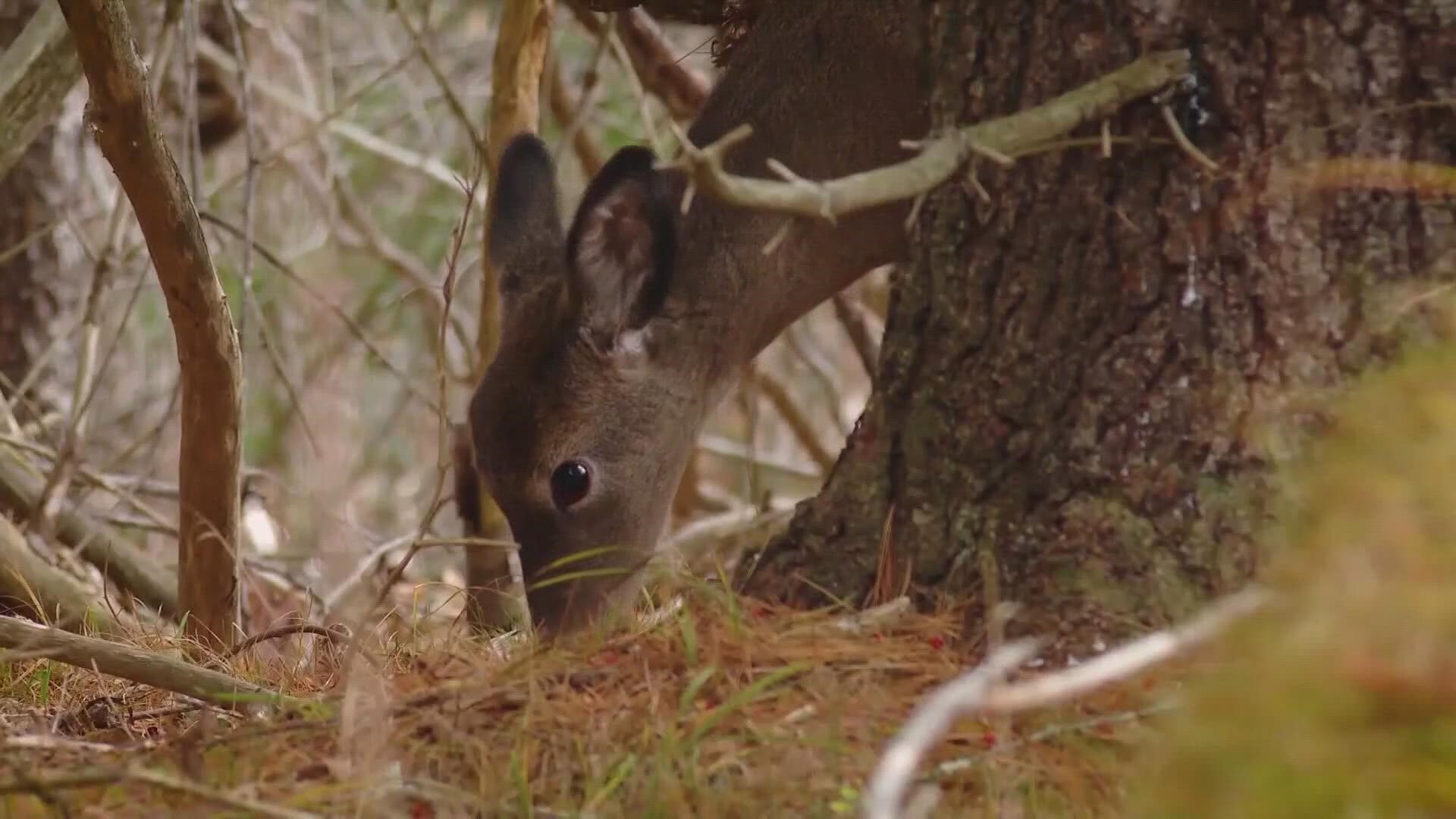MAINE, Maine — Firearm season for white-tailed deer opens this Saturday for Maine residents amid growing concerns about toxic chemicals in game animals.
In November of 2021, a "do not eat" advisory was issued for deer harvested in Fairfield and surrounding communities after several animals tested positive for elevated levels of industrial chemicals known as PFAS.
The class of chemicals has been linked in studies to health problems including organ cancers and thyroid issues.
With no testing capability in Maine, backlogs at out-of-state labs are delaying testing results for this year's hunting season. Maine wildlife biologists took samples from 60 deer in Fairfield and other surrounding communities -- considered a hotspot for PFAS contamination. Those samples were sent to a lab in Massachusetts in late August but there are still no results.
"Unfortunately, nationally there is a huge backlog for testing results for PFAS and it's been over 40 days now," Mark Latti, the spokesman for the Maine Department of Inland Fisheries and Wildlife, explained.
The source of the contamination is wastewater sludge, some from paper mills, spread as fertilizer on farm fields in the Fairfield area for decades.
Latti said results from a more significant sample of deer, along with migration patterns, could give biologists new answers.
"Once a deer gets away from those contaminated sites, is there PFAS in the system? Does it eventually work its way out of their system?" Latti added.
The delay is again raising health concerns as deer season gets underway.
"Last time around people already put the meat in their freezers, they were feeding it to their families, come to find out it was contaminated with PFAS," David Trahan, the executive director of the Sportsman's Alliance of Maine, said.
The organization represents more than 30,000 sportsmen and women. Trahan is calling for the legislature to fast-track the issue.
"We have to have a state lab, and expedited results so we can start testing," Trahan added.
Congress has yet to approve as much as 8 million in federal earmarks that would establish the first-of-its-kind PFAS research center and lab at the University of Maine in Orono. Experts estimate it could take several years before the lab is up and running.
Meanwhile, the testing results could be available as soon as next week, giving wildlife officials and the Maine CDC a complete picture of whether a "do not eat" advisory for harvested deer is warranted.
"We will take a look at those results and fine-tune that advisory area," Latti explained.
Samples from more than two dozen turkeys in the Fairfield area this past spring didn't result in a "do not eat" advisory, but more testing could take place next year.
For more information on the Maine Department of Environmental Protection's investigation into PFAS, click here.
More NEWS CENTER Maine stories

